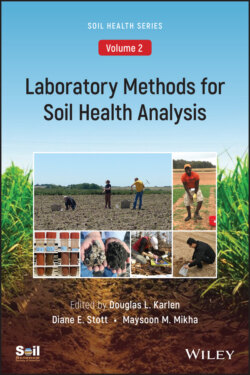Читать книгу Laboratory Methods for Soil Health Analysis, Volume 2 - Группа авторов - Страница 64
Biochar
ОглавлениеBiochar is a bioproduct from a thermochemical conversion (pyrolysis) of biomass (Koide et al., 2011). Biochar may be used as a soil amendment due to its chemical and physical characteristics, and because of its potential to help mitigate climate change. Sequestering biochar carbon in soil contributes greatly to reducing greenhouse gas emissions (Leng et al., 2019). Biochar has a high concentration of recalcitrant carbon that is resistant to decomposition (Glaser et al., 2002), but since a portion of most fresh biochar is easily decomposable (Lehmann and Joseph, 2015), and repeated analyses and applications of biochar may be necessary.
Due to its chemical complexity and large variability, a simple routine way to quantify biochar in soils is still scarce and under investigation, mainly because of the difficulty in distinguishing biochar from other forms of soil organic matter. Methods to evaluate biochar in soils are extremely labor intensive or need specialized instrumentation. According to Leng et al. (2019), biochar in soils has been quantified by scanning calorimetry, nuclear magnetic resonance spectroscopy or infrared spectroscopy, analysis of molecular markers, or by preferential removal of inorganic and non‐biochar organic C by selective oxidation or acid treatment followed by the analysis of residual organic material by NMR, optical, or mass spectroscopy, or thermal conductivity.
